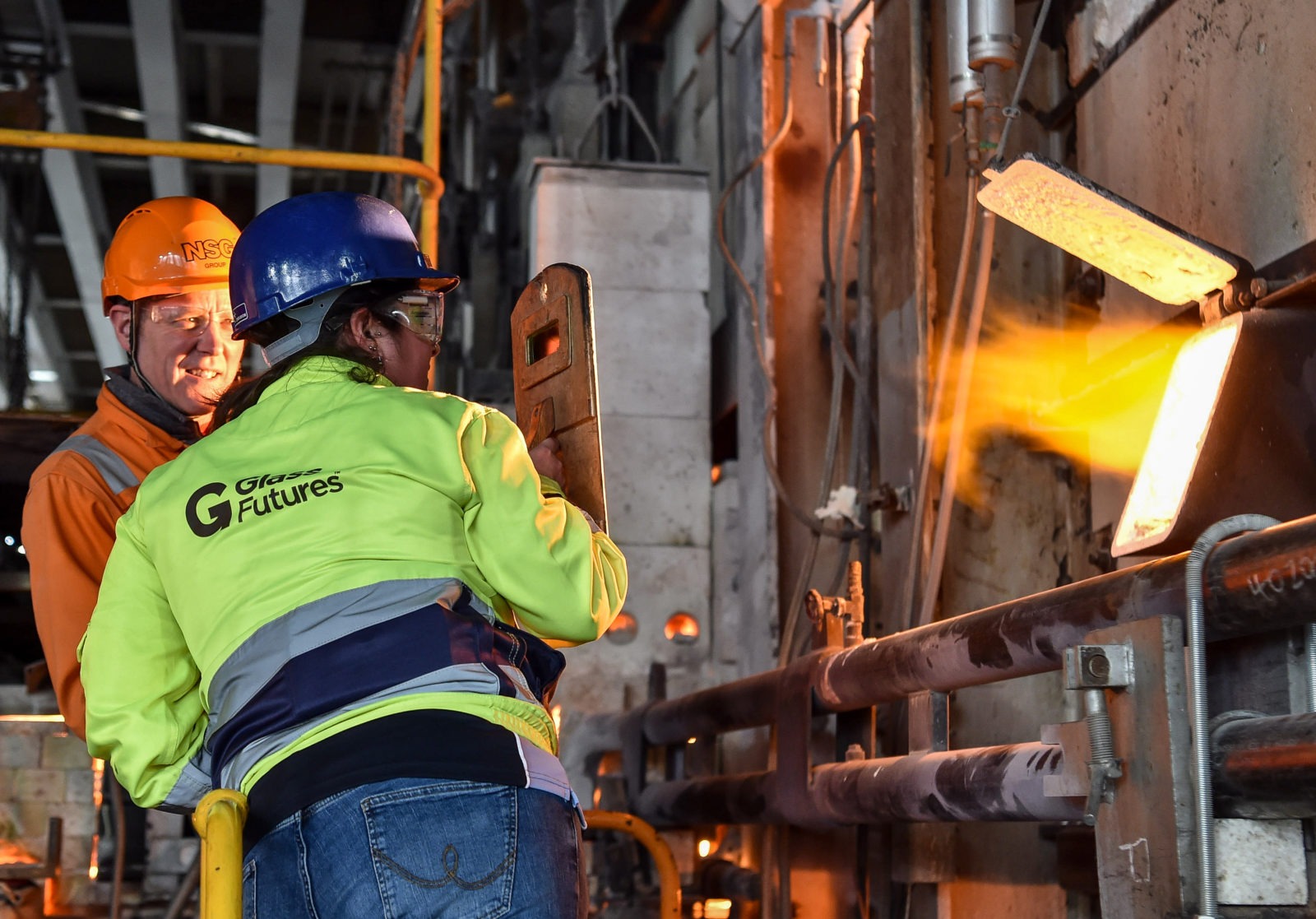Pilkington fires up biofuel furnace

Pilkington UK has become the world’s first flat glass manufacturer to fire its furnace on 100% biofuel, as part of an industry trial to find sustainable alternatives to natural gas.
A sustainable biofuel made from organic waste materials powered the St Helens glass manufacturer’s furnace entirely for four days, creating 165,000m2 of the lowest carbon float glass ever made. The fuel emits around 80% less CO2 than traditional natural gas used in the sector.
The trial forms part of a £7.1 million project led by industry research and technology organisation Glass Futures, working under the Department for Business, Energy and Industrial Strategy’s Energy Innovation Programme. It aims to demonstrate that the furnace could run safely at full production on the low-carbon fuel without impacting product quality.
Neil Syder, managing director at Pilkington UK, said: “Our world-first trial with Glass Futures proves how biofuel presents a realistic low-carbon alternative to natural gas, which will allow manufacturers to cut thousands of tonnes of CO2 from their production years ahead of alternative zero-carbon options becoming more readily available.
“Last summer, we became the first glass manufacturer in the world to fire a furnace with hydrogen, which represented a major step forward towards our future as a net-zero industry. But a significant body of work remains before hydrogen and electrification become feasible alternatives to natural gas for glassmakers, making biofuels an important transitionary fuel.
“The success of this trial is also important for the many sectors that rely on glass as an integral supply chain material. We’re now far closer to glass with less embodied carbon being accessible, which will help developers to create a more sustainable built environment.”
